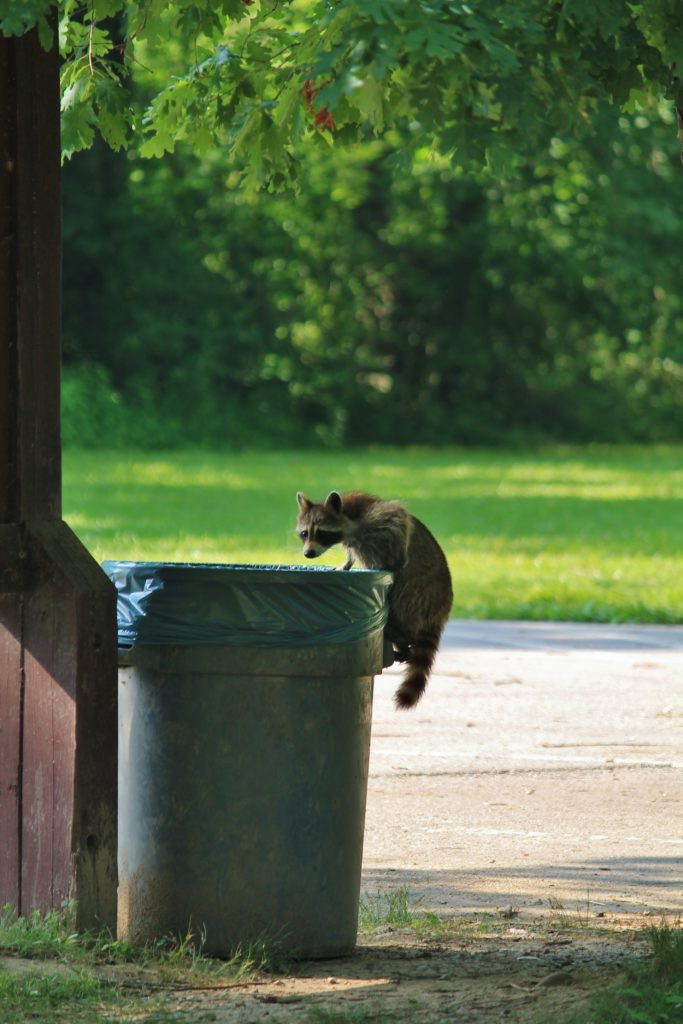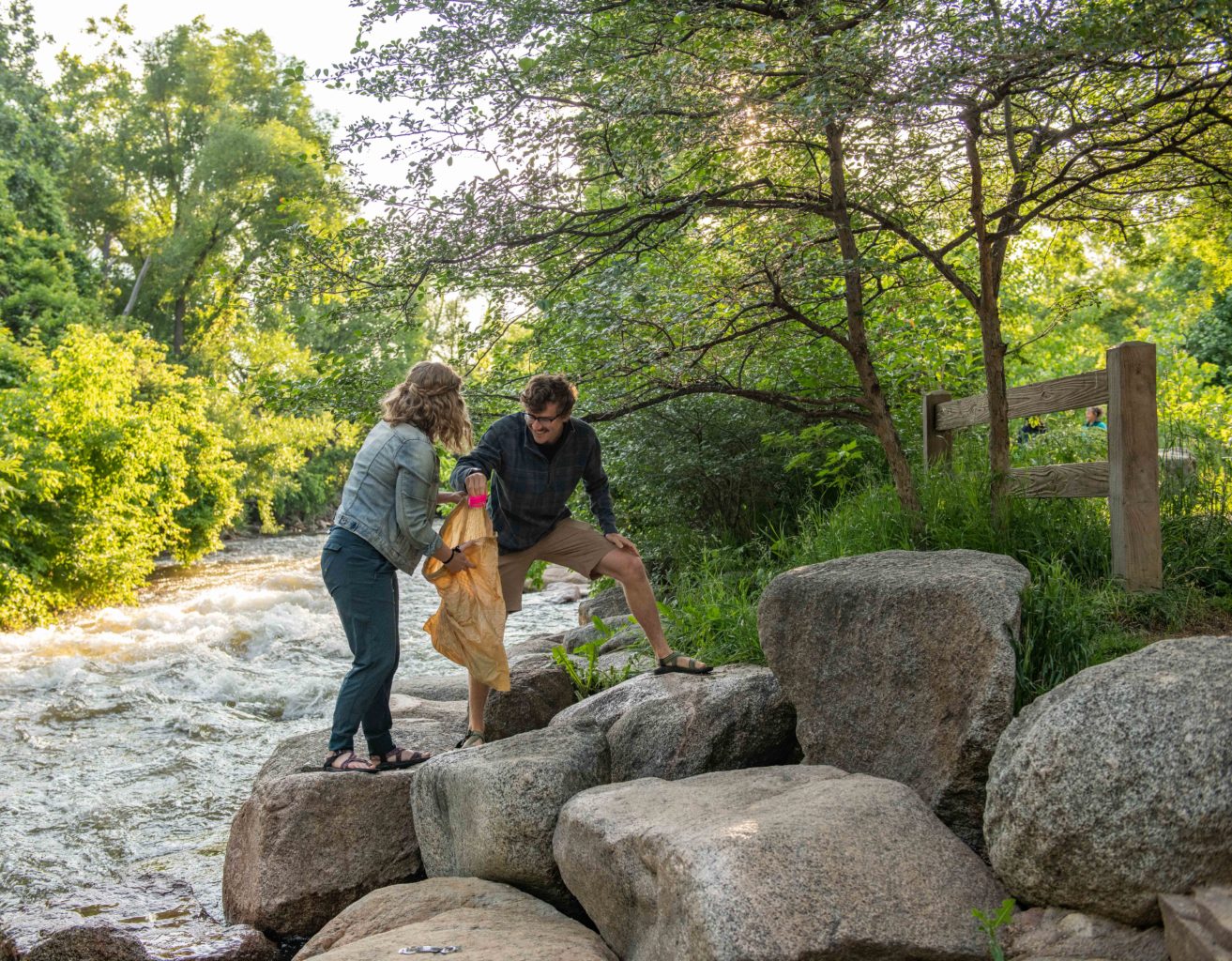
Stash Your Trash
Secure your trash bins, reduce the amount of waste you create, and clean up litter in your community to keep our streams clean and wildlife safe.
The Impact
Litter is not just unsightly. It harms water quality as it decomposes in our streams and can clog the stormwater system, causing damaging flooding during storm events.
Litter can take hundreds of years to break down. Even when it has broken down into pieces too small to see it is still there contaminating our environment. Plastic waste can further be broken down into microplastic particles less than 0.5 millimeters in size. They can come from clothing fibers, household supplies, and food and beverage packaging. Microplastics may contain contaminants and harmful organic chemicals, which impact water quality and degrade aquatic ecosystems.
Litter is also fatal to wildlife. Leaving litter with food smells (e.g. pizza boxes, sports bars or gum wrappers) causes bears to stop fearing humans and increases conflict, ultimately leading to those animals having to be euthanized. The digestive tracks of songbirds and raptors cannot process litter which causes death – ultimately decreasing populations. Birds get tangled in discarded fishing line and hooks. Please pass on the importance to disposing litter in waste bins or pack it out by following the basic Leave No Trace ethics when recreating.
